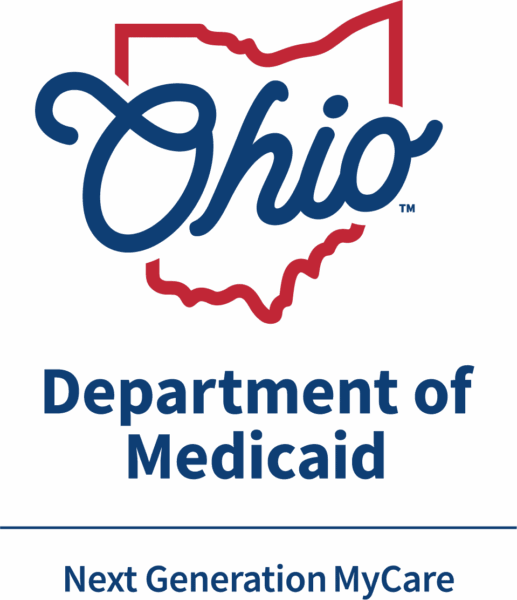What does Medicare Managed Care Mean?
Medicare Managed care, also known as Medicare Advantage, or Medicare Part C, is when a third party private insurance company manages your medicare benefits.
Medicare Managed Care is the private insurance alternative to the version of Medicare run by the federal government. It is a one-stop-shop for all your Medicare needs.
Although administered and managed by private insurance companies, Medicare Part C will cover all your benefits from Original Medicare (Part A and Part B), as well as Part D, depending on your provider and plan. Essentially, Medicare Part C combines all your Medicare-related services in one managed care plan.
Your Medicare Advantage plan may also include additional benefits, depending on your policy.
How does Medicare Advantage Work?
When you enroll in Medicare, you automatically join Medicare Part A, which covers your hospitalization costs, also known as inpatient services.
If you want outpatient coverage, which includes screenings, lab tests, doctor’s visits, etc., then you have to enroll in Medicare Part B and pay a monthly premium.
Medicare Part A and Part B are known as Original Medicare, and it covers your basic inpatient and outpatient services.
Eligibility for Medicare Managed Care (Part C)
If you’re enrolled in both Part A and Part B, you’re then eligible to enroll in Medicare Part C, which is also known as Medicare Advantage, or Medicare Managed Care.
You must also live in the area where your insurance provider offers coverage through Medicare Part C plans.
Besides these requirements, you must meet the general requirements to qualify for Medicare.
Would I Lose Any of My Benefits if I Switch to Medicare Part C?
If you’re switching from Original Medicare (Part A and Part B), you will not lose any of your benefits. The federal government requires by law that providers of Medicare Advantage plans cover everything that was covered under Original Medicare.
You can add additional services to what you already have with Original Medicare, but you won’t lose any of your benefits.
If you’re currently enrolled in Medicaid, and you’re thinking of switching to Medicare, you may or may not lose some benefits depending on the Medicaid benefits in your state. We’ll cover more on this topic later in the article.
One thing to note is that even if you do switch to Medicare Managed Care, any hospice care needs will still be covered through Medicare Part A, and not Part C.
How Do Payments Work With Medicare Advantage Plans?
If you choose to sign up for a Medicare Managed Care plan, you must still keep paying your Medicare Part B premium, just like you would if you had Original Medicare.
But you’d no longer use your Medicare card when you need services. Instead, you’ll be issued a new card by your private insurance company that you’d use any time you visit the doctor or the hospital.
In other words, Medicare Advantage combines your Medicare Parts A and B into one plan and issues you a new card for it.
Whether you’d have to pay any additional fees would depend on the specific policy that you sign up for. Some Medicare Advantage plans can have no extra premiums, although you may still find them to be more beneficial than Original Medicare, as we will discuss below.
What are My Costs Associated With Medicare Managed Care?
Apart from your Part B premiums that you must keep paying, there might be a few additional costs associated with Medicare Part C, or Managed Care.
Your personal Medicare Part C costs will vary on your specific needs for coverage and the type of plan. If you receive financial assistance, that could affect your expenses as well.
For a personalized estimate of your Medicare Advantage plan costs, visit Medicare.gov to compare plans in your area.
In general, here are the various costs associated with a Medicare Advantage plan.
Part C Medicare Premiums
Depending on your plan, your Part C premium could be anywhere from $0 to $270. Note that this is on top of the Part B premium that you’d be paying already to be able to qualify for Part C.
In 2020, the average monthly Medicare Advantage plan premium is expected to be around $23, a decrease from $26.87 in 2019. Your specific insurance premium would depend on the type of plan and coverage that you choose.
Additionally, some Medicare Advantage plans might also pay a part of your Medicare Part B premium.
Part C Medicare Deductibles
Deductibles are what you pay out of your own pocket before an insurance provider will pay for any expenses.
It is not only with Medicare Advantage plans – you would pay a deductible with Medicare Part B as well.
But many Medicare Advantage plans have $0 annual deductibles. If you include prescription drugs coverage, then you might be charged a deductible for that also.
As always, you’d have to check with your provider for the deductibles associated with your specific policy.
Part C Medicare Copayments
Copayments are your out of pocket expenses for specific services, like a visit to the doctor’s office, a lab test, etc.
In traditional Medicare, you might have to pay a coinsurance, which is a percentage of the total cost. With Medicare Advantage, the copayment is usually a flat fee.
If you need to see a doctor outside of your insurance company’s network of providers, you might be charged a higher copay.
Check for Annual Updates to Medicare Part C Costs
If you enroll in Medicare Advantage, it is vital that you check with your insurance provider every year for updates to their plans. Part C plans update their premiums, deductibles, and how you get service on an annual basis.
Medicare Advantage Cost Savings
With the deductibles, copayments, and potentially having to pay an additional Part C premium, it might seem like it would be more expensive to enroll in Medicare Advantage than to stay with regular Medicare.
But evidence suggests that Medicare Advantage can actually save you money. According to one report, Medicare Advantage beneficiaries spent significantly less overall when compared to traditional Medicare.
One of the reasons why Medicare Advantage may cost less is the limit on your annual out of pocket expenses.
Medicare Advantage and Maximum Out Of Pocket Expenses
The limit on out of pocket expenses could be one of the most significant factors that make people choose Medicare Advantage over regular Medicare Part A and Part B.
When you have regular Medicare (Part A and B), there is no limit on your out of pocket expenses. So, if you need specific services or procedures, your financial liability could be limitless.
If you have a chronic condition that requires regular medical attention, or you have an unexpected health problem, you could end up paying several thousands of dollars out of your pocket.
With Medicare Advantage, on the other hand, there is a limit to what you have to pay during the year.
Once you’ve reached your expenses limit, your insurance provider will cover any additional costs for the rest of the year. Setting the Medicare Advantage maximum annual out of pocket expenses limits your liability regardless of any unexpected health conditions.
How Much is the Medicare Advantage Out Of Pocket Expenses?
In 2020, the maximum out of pocket spending, also known as MOOP, is capped at $6,700 if you only use providers within your network.
If you go outside your network, assuming your plan allows that, then your MOOP could be a little higher.
Some Medicare Advantage plans also offer a MOOP that is lower than the maximum limit set by the federal government.
What does Medicare Advantage Maximum Out Of Pocket Expenses Cover?
The following costs can count towards your out of pocket maximum expenses during a year.
- Copayments or coinsurance for doctors visits, ER visits, inpatient and outpatient services
- Copayments or coinsurance for lab tests and screenings
- Copayments or coinsurance for prosthetics or other medical equipment
- Copayments or coinsurance for nursing home stays
- Copayments or coinsurance for home health care attendants
Your annual deductible through Medicare Advantage also counts towards the MOOP, although the monthly premiums, if any, do not.
If you have Medicare Part D for prescription drugs, it will be managed under your Medicare Advantage plan.
But costs associated with Medicare Part D won’t count towards your Medicare Advantage maximum out of pocket expenses. A Medicare Part D plan will have its own maximum expenses limit.
Who Covers My Medical Expenses Under Medicare Advantage?
The federal government still provides your basic coverage for hospital and medical services, but your private insurer would manage them.
More specifically, your coverage is provided by the CMS, or Centers for Medicare and Medicaid Services.
But it works a bit differently with Medicare Advantage plans.
Managed Care vs. Fee-For-Service Medicare
If you have Original Medicare, and you need to visit the doctor, you show up at your appointment and give them your Medicare card. CMS then reimburses your doctor retroactively for the service he or she provided you.
This retroactive form of reimbursement is also known as fee-for-service Medicare, because the medical provider gets a fee every time they provide a service.
With Managed Care plans, CMS has contracts established with insurance providers. CMS pays the providers a set lump sum each month for your benefits. This lump sum is intended to cover all of your medical expenses each month.
If your expenses exceed the lump sum, then your provider will be responsible for the additional costs.
What are the Different Types of Medicare Managed Care Plans?
There are a few different types of Managed Care plans, but the vast majority of them are HMO and PPO plans. Those are the ones we will focus on in this section.
Medicare Managed Care HMO Plans
HMO stands for Health Maintenance Organization. If you sign up with an HMO plan, then you’ll have to use doctors, health-care providers, and medical facilities within the plan’s network.
There would be exceptions in the event of an emergency. You will still receive care through something known as HMO-POS, but your plan may not cover all your expenses.
HMO Plans and Primary Care Physician
Your HMO plan will require that you choose one doctor in your network as your primary care physician, who will be your first contact for any undiagnosed health issues, as well as continued care for various medical conditions.
If you need to see a specialist, your primary care physician will have to refer you. The exceptions are services like annual screenings that do not require a referral.
HMO Plans Prescription Drugs Coverage
HMO plans generally include some sort of prescription drug coverage under Medicare Advantage Drug Plans. You can also choose plans that cover Medicare Part D prescription drug coverage.
Medicare Managed Care PPO Plans
PPO stands for Preferred Provider Organization. These plans offer you more flexibility and do not require you to choose providers only within your network.
But if you do visit doctors and clinics within your provider’s network, your out-of-pocket expenses would be lower than if you used ones outside of the network.
PPO Plans and Primary Care Physicians
You don’t have to pick a primary care physician in PPO plans. You also don’t need a referral if you want to see a specialist.
PPO plans offer you greater flexibility and convenience because you can see the specialist you want without having to go through the referral process.
PPO Plans Prescription Drugs Coverage
Like HMO plans, PPO plans generally include some sort of prescription drug coverage under Medicare Advantage Drug Plans. You can also choose plans that cover Medicare Part D prescription drug coverage.
HMO vs. PPO: Which One is Right for Me?
HMOs offer cost savings, but you have less flexibility when it comes to choosing your doctors. If you don’t travel much, and having a primary care physician in your area that coordinates your healthcare fits your needs, then an HMO plan might be right for you.
Alternatively, PPO plans provide greater flexibility, especially if you travel a significant amount. You can choose to visit doctors outside of your area of residence and you’d have the ability to coordinate your own care. But PPO plans could have higher premiums and other associated costs.
Why Would I Want to Enroll in Medicare Managed Care?
Let’s look at some of the most significant reasons why people choose to enroll in Medicare Managed Care plans.
Convenience
Medicare has four parts.
- Part A – Inpatient services
- Part B – Outpatient services
- Part C – Medicare Advantage
- Part D – Prescription drugs
If you’re separately enrolled in Parts A, B, and D, it could require a lot of additional time and energy to keep all your documents, premiums, and other expenses organized.
One of the benefits of Medicare Part C is that one provider manages all of your benefits. Many Medicare Advantage plans also cover Part D so that your prescription drug expenses are taken care of.
Your insurance provider becomes your one-stop-shop for all your Medicare needs.
Greater Coverage
Another benefit of Medicare Advantage is that you get to pick and choose your coverage.
Along with everything included in Medicare Part A and B, Medicare Part C may cover additional services like dental, vision, and more, depending on your plan.
Additional benefits under Medicare Managed Care may include:
- Dental care, including X-rays, routine cleanings, dentures, etc.
- Vision care including check-ups and contacts/eyeglasses
- Hearing check-ups and hearing aids if necessary
- Wellness benefits like fitness classes to prevent disease
Medicare Managed Care May Save You Money
As we explained before, Medicare Managed Care may save you money for a few reasons.
Flat fees – With Medicare Managed Care, you pay a flat fee for copayments for doctor’s visits, lab tests, etc. With regular Medicare, you pay on a percentage basis, which often turns out to be more expensive.
MOOP – The maximum out of pocket expenses limit set in Medicare Advantage limits how much you’d have to spend in a given year. With regular Medicare, there is no limit on your annual expenses.
A Greater level of care – For the same level of coverage and care, you’d most likely pay more with regular Medicare. For comparable coverage, you’d have to enroll in Medicare Part D, as well as supplemental insurance.
Medicare Managed Care Drawbacks
Depending on your medical needs, it could be beneficial to you in many ways to switch to Medicare Managed Care. But there are a couple of drawbacks that you should be aware of so you can make an informed decision if it is right for you.
You May Require Referrals
With regular Medicare, you can generally visit any doctor or facility that accepts Medicare. With Managed Care, your options may be more restricted, especially if you choose an HMO plan and have to go through a primary care physician. If you choose a PPO plan, you’d have greater flexibility.
Plans Have Service Areas
This is especially true for HMO plans, but you’d have to visit doctors and facilities within your network, most of which will be in your area. If you travel a lot, your choices could be restricted. Of course, you can once again get around this by choosing a PPO plan, but they do tend to cost a bit more.
Managed Care vs Medicare Supplement Insurance (Medigap)
Some people confuse Medicare Managed Care with Medicare Supplement Insurance, which is also known as Medigap.
But they are not related to each other and provide coverage in different ways.
With Medicare Managed Care, you are still getting your coverage through Medicare, but your benefits are managed by an insurance company.
With Medigap, your coverage comes from a private insurance company to fill any gaps in your Medicare coverage (instead of a private insurance company only managing your Medicare coverage).
Medicare Supplement Insurance may cover costs for expenses within Medicare such as copayments, deductibles, and coinsurance. It may also cover you during international travel, which is not covered by regular Medicare.
To be eligible for Medicare Supplement, you must have Medicare Parts A and B, just like Medicare Managed Care. Additionally, you have to pay a premium to the private insurance provider for your Medigap coverage.
Is it Worth it to Switch From Medicaid to Medicare?
Whether Medicaid or Medicare is right for you will depend on your specific healthcare needs, finances, and your eligibility for both of the programs.
If you qualify for both, then it might make sense for you to take advantage of both programs.
Eligibility for Medicaid vs. Medicare
In general, Medicare eligibility is based on age and whether you qualify for social security benefits, along with a few other factors. You can find out if you are eligible through the Medicare.gov eligibility tool.
Medicaid, on the other hand, is based on income and family size. For most people above the age of 65, an income lower than 133 percent of the federal poverty level would allow them to qualify for Medicaid (approximately $15,000 for an individual and $30,000 for a family of four).
Medicaid Benefits
If you’re already on Medicaid, and you’re thinking of switching to Medicare, you should consider the benefits that you currently get with Medicaid and compare them with any potential Medicare Advantage plan that you’d sign up with.
The Medicaid benefits will vary from state to state, but federal law requires that they all provide mandatory benefits to recipients.
The mandatory benefits in each state include:
- Inpatient hospital services
- Outpatient services
- Physician services
- Lab tests
- X-rays
- Home health services
Some states may also include optional benefits such as:
- Prescription drugs
- Case management
- Physical and occupational therapy
CDPAP Benefits in NY
If you’re living with a disability in the state of New York, one of the unique benefits available to you through Medicaid is CDPAP.
Consumer Directed Personal Assistance Program (CDPAP) is a program run by New York State Medicaid designed to provide services to people who are chronically ill or disabled and need assistance with activities of daily living (ADLs).
You can hire a home attendant, a home health aide, or a nurse, depending on the level of care you need. CDPAP, which is funded by Medicaid, will cover the wages of your home attendant.
One of the advantages of CDPAP is that you can hire a friend or family member as your caregiver, with a few exceptions (spouse, parent if your child is under 21, etc.).
Here are the eligibility requirements for CDPAP.
- You need to have Medicaid
- You must have a health condition that causes you to require home care on an ongoing basis
- You must be able to hire, train, and direct your caregiver on your care needs
For detailed information, including all the benefits of CDPAP, how to apply, and more, be sure to check out our in-depth CDPAP guide.
Remember, CDPAP is only available through Medicaid and not Medicare. So, if you need assistance with daily living, and you live in the state of New York, you will lose this benefit if you switch from Medicaid to Medicare.
Final Thoughts on Medicare Managed Care
If you’re currently enrolled in Medicare, then switching to Medicare Managed Care might be a good option if you frequently visit the doctor, or use the medical facilities like lab tests, screenings, etc.
It could be a good option for you also if you need prescription drugs coverage.
For the same level of care, you’d most likely save money and time with Medicare Advantage when compared to Original Medicare.
But if you’re eligible for Medicaid, then you might end up losing some coverage if you switch to Medicaid.
Take some time to evaluate your medical needs, and then compare the benefits you’d receive from Medicaid in your state to that you’d get from Medicare. Then you can use the information in this article to decide if a Medicare Managed Plan is right for you.








